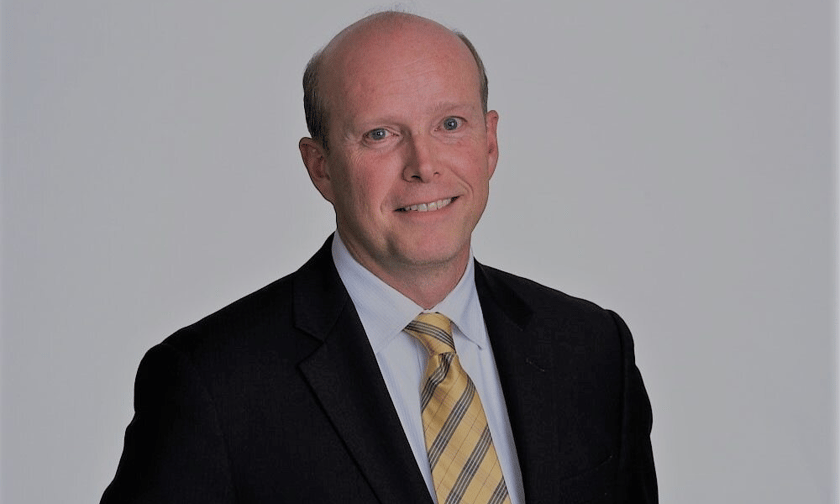

In the Canadian insurance market, rapid consolidation is reshaping distribution strategies, especially as private equity firms take an interest in brokers and managing general agents (MGAs). Speaking to IB, Ecclesiastical Insurance’s senior vice president, strategic distribution Rob Jordan (pictured) said that the pace is relentless – and it’s not looking like slowing down.
“M&A activity within our top 10 brokers continues to be very robust… I counted 35 acquisition[s] in our top 10 brokers in the first 10 months of the year.”
For Jordan, these trends highlight a “severe stress” on multi-generational, family-owned brokerages as larger consolidators knock on their doors with buyout offers. In response, Ecclesiastical has embraced a more targeted approach to broker partnerships, adapting its distribution strategy to the new landscape.
“Our approach will be tailored to each broker’s specific situation,” he told Insurance Business.
Jordan added that acquisition prices are also increasingly steep, prompting some brokers to assess whether other markets might offer more sustainable opportunities.
“The multiples are… very expensive right now,” he explained, adding that some are now “looking at other countries… or really specialty lines or diversification, as opposed to general P&C.” Given the “pricing… getting quite high,” he anticipates a potential slowing of M&A activity, but only in certain segments, as brokers consider more affordable alternatives abroad or in specialized lines.
Ecclesiastical itself has long specialized in niche markets, including heritage properties, nonprofits, and educational institutions. Jordan explained that Ecclesiastical seeks out brokers with whom it can establish “deep trilateral relationships” with clients, brokers, and insurers, especially in high-risk or complex market areas.
“Specialisms [are] where [brokers] can add value to the customers,” he said.
Jordan provides a concrete example: heritage properties often face challenges like “inadequate insurance to value,” a problem compounded by the rising costs of imported materials and skilled artisans. This complexity is rarely addressed by general insurers, who may overlook specific risks associated with unique building materials, asbestos remediation, or the intricacies of local heritage bylaws.
“Cost overruns in the approval process with heritage boards, finding the presence of asbestos in a claim investigation and then the remediation costs associated with that” are additional challenges that Ecclesiastical’s niche-focused model is designed to address. For generalist insurers, he added, these demands often “fall outside [their] expertise,” whereas Ecclesiastical is equipped to provide both insurance coverage and risk management guidance that is attuned to these specifics.
This focus on specialized segments extends to the nonprofit sector, which faces heightened scrutiny and litigation risks, especially as awareness increases around issues like harassment and abuse.
“There was a time when most nonprofits were viewed as immune from lawsuits…[now they] need experienced oversight and guidance,” he said. Ecclesiastical’s expertise in handling sensitive claims is a major asset, especially when reputation is at stake.
“Risk reputation for [nonprofits] is so important to preserve their donor funding streams,” Jordan explained, as any missteps in handling these claims could impact funding and jeopardize the organization’s future. He also added that Ecclesiastical’s claims team works to protect these organizations’ reputations, managing not only the claims process but also any media coverage that could harm public perception.
Regulatory changes, particularly around climate risk, are an additional layer that Ecclesiastical is helping brokers navigate. For Jordan, climate regulations are more than just a compliance task—they’re central to Ecclesiastical’s ethos.
“We’re well positioned to manage evolving climate regulations within our existing climate commitments as part of the Benefact Group,” he said referring to the UK-based parent company that achieved net-zero direct emissions in 2023 and aims to reach full net-zero by 2040.
“Sustainability is an essential component of our business strategy,” he said.
Ecclesiastical also provides brokers with resources to support their own sustainability initiatives. One such offering is “Green Assist,” a benefit for all policyholders that educates brokers and clients on ways to achieve net-zero emissions and stay compliant with upcoming regulations.
“We understand that there are challenges there… and we’re committed to working together to provide them with… that support,” Jordan said. This extends to Ecclesiastical’s charitable initiatives, including a “community impact grant program” that directs funds toward sustainable causes. Jordan emphasizes the importance of these programs, noting that supporting brokers’ understanding of sustainability practices can make a significant difference as the industry faces heightened environmental scrutiny.
“We’ve made a commitment to positive environmental impact,” added Jordan.
